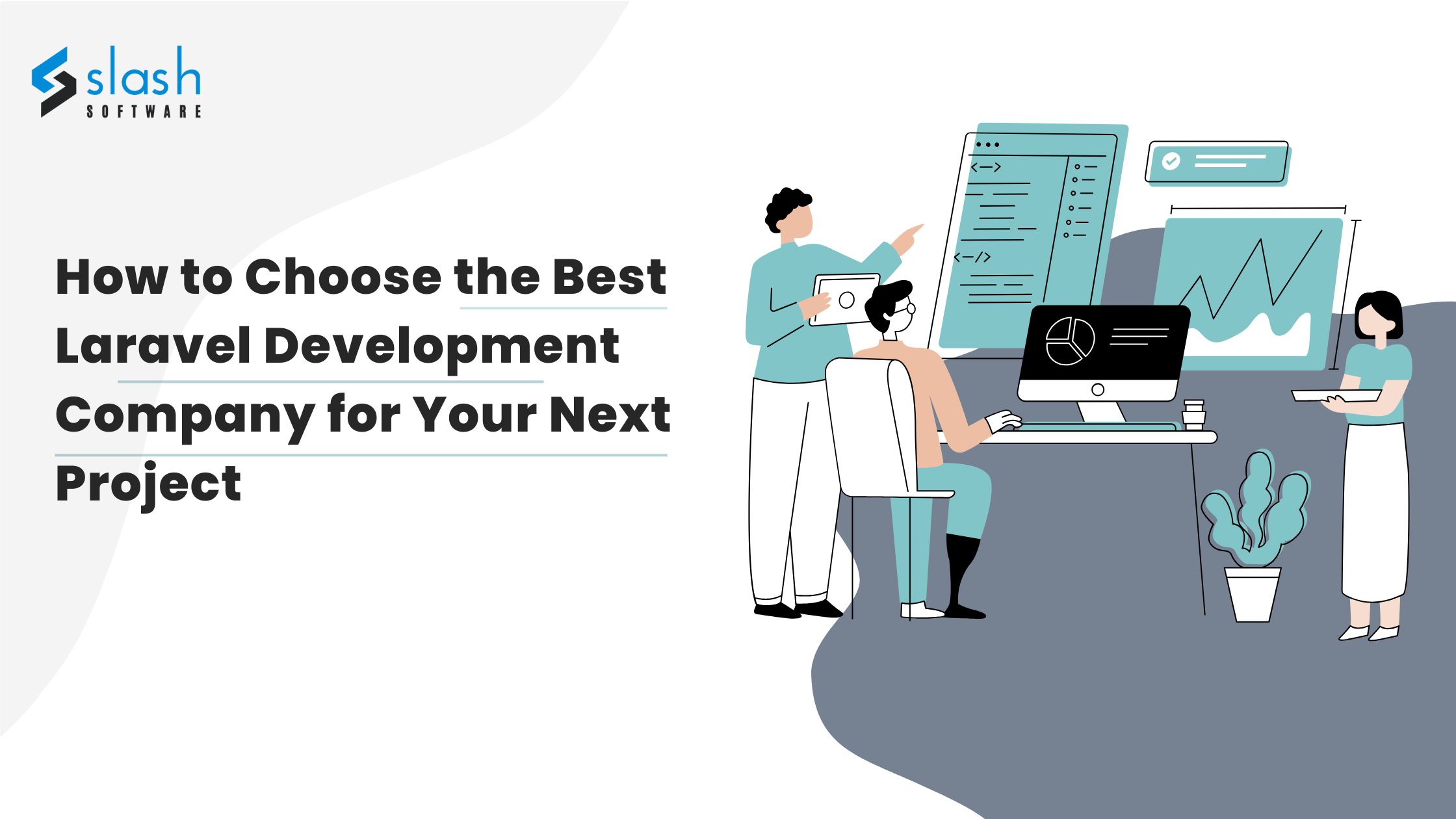If you’ve ever stared at a blank notepad trying to decide who to hire for your software project, you’re not alone. Picking a good Laravel development company is more than checking off a features list, it’s about matching vision, process, and trust. Below is a comprehensive guide (think engineer + pragmatist) to help you avoid expensive mistakes.
Why Laravel? Why Care About the Partner?
Laravel is a mature, widely used PHP framework. It provides structure, scalability, and a rich ecosystem (Eloquent ORM, Blade templating, queues, events, etc.). But the difference between success and failure isn’t the framework it’s how well your team uses it. A great Laravel team will elevate your idea; a mediocre one will leave you with technical debt.
You don’t hire “Laravel development” you hire architecture, problemsolving, futureproofing. So treat your decision like that.
What You Should Know Before You Hire
Before you reach out to companies, clarify the following for yourself:
- Scope & MVP What features must exist day one? What can wait?
- Nonfunctional requirements Performance thresholds, concurrency, latency, security, faulttolerance.
- Tech assumptions Database (MySQL, PostgreSQL, Redis), frontend (Vue, React, Inertia, plain Blade), hosting (cloud, VPS, serverless).
- Growth path Will you need to handle millions of users? Or will the app stay small?
- Maintenance budget Expect at least 20% of development cost per year for updates, security patches, and refactoring.
Having clarity will allow you to filter out firms that aren’t a fit.
What to Look for in a Laravel Development Company
Here are signals to watch, and red flags to avoid.
Signals You Want (Positive Indicators)
- Deep Laravel experience
Real case studies of Laravel projects (APIs, multitenant, queue systems).
Open source contributions or blog posts on Laravel architecture or best practices. - Technical transparency
Willingness to explain architecture, tradeoffs, and past failures.
Sample of their CI/CD pipeline, tests, code style rules. - Process & workflow maturity
Usage of Agile/Scrum or Kanban.
Tools: Git branching strategy, code reviews, issue tracker.
QA workflow woven in from day one, not just at the end. - Testing & quality tools
Use of PHPUnit or Pest, test coverage.
Static analysis (PHPStan, Larastan), code linters.
Automation: their CI should fail builds on errors/warnings. - DevOps & deployment expertise
Infrastructure as Code, staging/production pipelines, rollbacks.
Monitoring, logging, alerting systems in place. - Securityfirst approach
Awareness of OWASP Top 10 vulnerabilities.
Secure practices: validation, authorization, input sanitization, secure headers, encryption. - Support & maintenance terms
Clear SLA for postlaunch bug fixes, security updates.
Commitments to future feature work or scaling support.
Red Flags (Warning Signs)
- Vague descriptions, no technical depth.
- No prior Laravel projects or hidden portfolios.
- Refusing to allow code reviews, tests, or architecture discussion.
- “We don’t use static analysis; it slows us down.”
- No clarity on who owns the IP or source code.
- No maintenance plan or postlaunch support.
Technical Questions to Ask the Vendors
Below are questions designed to separate the serious from the surfacelevel.
| Question | What You Want to Hear |
| “Describe a complex Eloquent query you optimized and how you found and fixed an N+1 issue.” | Use of with(), profiling (e.g. query logs), measured before & after. |
| “Walk me through your service container / dependency injection strategy for swapping implementations.” | Use of interfaces, binding, test doubles in DI. |
| “How do you structure queues and background jobs? What happens when a job fails?” | Retry logic, deadletter handling, idempotency, monitoring. |
| “Can you show me your last CI pipeline where do tests and static analysis run?” | CI config with PHPUnit/Pest, PHPStan/Larastan, code style checks, gating failures. |
| “How do you handle security in Laravel what are common vulnerabilities and how do you prevent them?” | Input validation, authorization gates, CSRF, SQL injection, encryption, secure headers. |
| “What will you commit to for maintenance, updates, and production support after launch?” | Defined SLA, periodic updates, patch commitments, response time. |
If they struggle or dodge any of these, you should worry.
How to Compare Proposals & Choose Wisely
Use a scoring framework. You can weight categories based on what matters most to you.
| Category | Key Metrics / Checklist |
| Architecture & Code Design | Clarity, modularity, documented approach |
| Testing & Quality | Test coverage, static analysis, CI pipeline |
| Process & Delivery | Sprint cadence, feedback loops, version control |
| DevOps & Deployments | Environment strategy, rollbacks, monitoring |
| Security & Compliance | Security plan tied to known risks |
| Support & Maintenance | SLA, contracts, future scope handling |
| Transparency & Communication | Responsiveness, openness, clarity in talk |
Score each vendor across these, and compare not by cost, but by total “confidence points.”
Also consider doing a paid pilot or “spike project” a small but meaningful slice of your system before committing fully.
What Happens After You Hire
- Start with a kickoff architecture workshop: whiteboard or virtual, map modules, data flow, dependencies.
- Break the work into small vertical slices so you see value early.
- Require frequent demos (weekly/biweekly) to keep alignment.
- Insist on documentation and tests from the start you don’t want blackbox modules you can’t understand.
- Monitor real metrics: response times, error rates, deployment frequency.
- Plan for continuous refactoring and set aside time for cleanup and tech debt.
Why Choose Slash Software for Laravel Development
At Slash Software, We’ve delivered hundreds of high performing web applications and enterprise systems for clients across the globe – helping businesses scale with confidence and precision.
Our approach goes beyond writing code. We architect smart, scalable, and secure systems tailored to your business goals. Whether it’s a SaaS platform, enterprise portal, or API integration, we bring deep Laravel expertise and fullstack capability with Vue.js, React, and Inertia.js.
What Makes Us Different
- 200+ Skilled Developers Dedicated Laravel experts, UI/UX designers, QA engineers, and DevOps professionals under one roof.
- Agile Delivery Process Sprintbased development, transparent communication, and continuous feedback.
- EndtoEnd Services From discovery and design to deployment, maintenance, and optimization.
- Security & Performance Focused Built around OWASP standards, performance optimization, and longterm scalability.
- Flexible Engagement Models Hire a dedicated Laravel developer or a full managed team as per your needs.
- Global Client Trust 500+ successful projects delivered across 20+ countries.
At Slash, we believe great technology starts with great collaboration. You get clear communication, measurable progress, and a team that truly cares about your vision.
Choose Slash Software where experience, innovation, and craftsmanship come together to build Laravel solutions that last.
Final Thought
You don’t need to be a technical wizard to pick a good Laravel development company. You just need to know enough to see who is hiding vs. who is clear who will deliver muscle, and who will deliver smoke. Ask the right questions, demand evidence, and start small. The right partner will help you build well, not just build fast.
If you like, I can shape this into a content outline or slide deck you could use to vet vendors or show your team.


